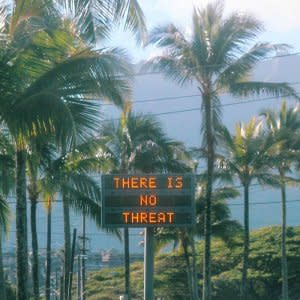Senate panel to probe Hawaii alerts as FCC investigates

Thomson Reuters
By David Shepardson
WASHINGTON (Reuters) - A U.S. Senate panel plans to hold a Jan. 25 hearing on the errant Hawaii ballistic missile alert that stirred panic and anger as the Federal Communications Commission investigates the matter.
The Senate Commerce Committee is expected to announce later Thursday it will hold a hearing next week on the false alert and why it went uncorrected for 38 minutes, officials said.
In a speech Thursday in Washington, FCC Chairman Ajit Pai said FCC investigators were on the ground in Hawaii.
"This incident highlights the need for our alerting system to work properly and for alerts to convey accurate information to the public," Pai said. "We want to understand how this mistake occurred, why it took 38 minutes for the state of Hawaii to issue a correction alert, and what needs to be done to ensure that this does not happen again, in Hawaii or elsewhere."
On Tuesday, a U.S. House of Representatives panel said it planned a separate hearing over the alert.
Authorities blamed human error for the false alarm in Hawaii. Pai has said Hawaii apparently did not have adequate safeguards in place and that government officials must work to prevent future incidents.
House Energy and Commerce Committee Chairman Greg Walden, a Republican, told Reuters this week he wanted to know if additional checks and balances were needed for alerts of international significance.
"You’d think there would be another authentication along the way before something like that went out," Walden said.
Policymakers are working to improve the alerting systems.
In November, the FCC approved the use of new technology known as ATSC 3.0 that uses precision broadcasting and targets emergency or weather alerts on a street-by-street basis. The alerts could include maps, storm tracks and evacuation routes, the FCC said.
Pai noted Thursday that the technology "has the capability to send a signal that will wake up sleeping devices so that all consumers will be warned of imminent emergencies even if their device is turned off. And those warnings can be sent in multiple languages."
To prevent a repeat of the incident, Hawaii’s Emergency Management Agency has said it will require two employees to activate the alert system - one to issue the warning and another to confirm it.
(Reporting by David Shepardson; Editing by Andrea Ricci)
See Also:

 Yahoo News
Yahoo News 
